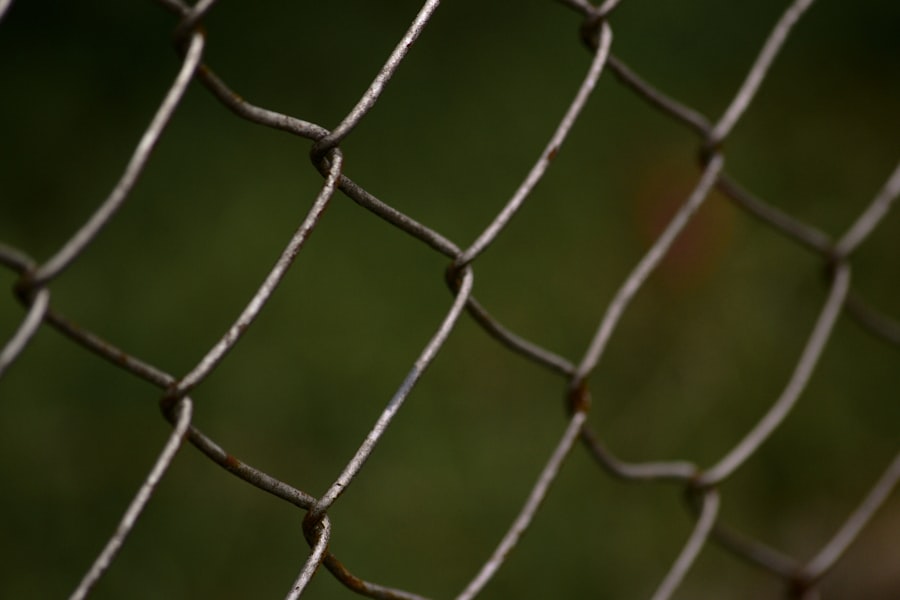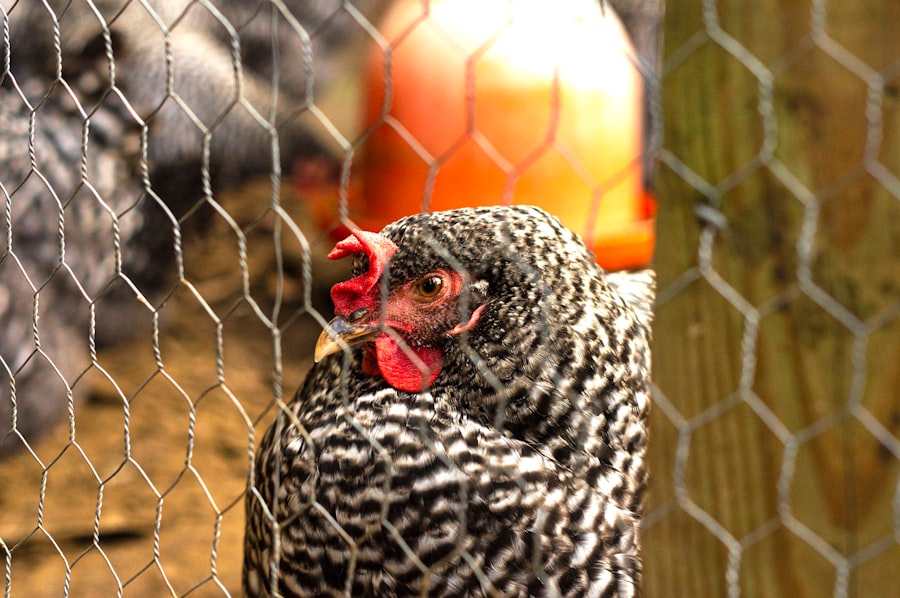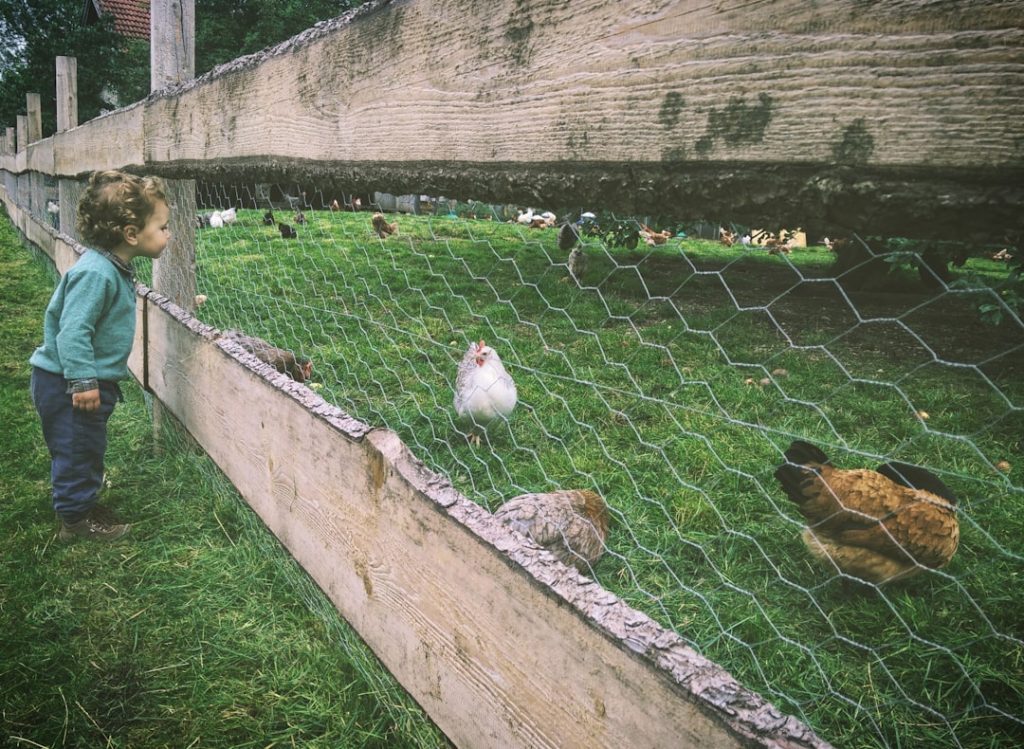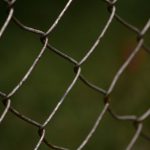Chickens are commonly kept in backyard settings for egg production and as pets. However, their natural behaviors can pose challenges for maintaining flower gardens. Chickens instinctively scratch and peck at the ground to search for food, which can result in damage to flower beds.
This behavior can lead to uprooted plants, disturbed soil, and consumption of flowers and foliage. Chicken droppings can negatively impact plant health and create unsightly conditions in garden areas. The birds’ natural curiosity and foraging instincts drive them to explore flower beds, potentially causing significant damage to cultivated plants.
Additionally, chickens are attracted to insects that inhabit flower gardens, further increasing their presence in these areas. The combination of chickens’ innate behaviors and their attraction to garden environments makes it difficult to prevent damage without implementing specific strategies. Understanding these factors is essential for developing effective methods to protect flower gardens from chicken-related destruction.
Garden owners who keep chickens must consider these challenges and implement appropriate measures to maintain both their poultry and their plants successfully.
Table of Contents
- 1 Creating Physical Barriers: Fencing and Netting to Keep Chickens Out
- 2 Natural Deterrents: Using Plants and Scents to Repel Chickens
- 3 Training and Supervision: Teaching Chickens to Stay Away from Flower Beds
- 4 Providing Alternative Spaces: Designating a Separate Area for Chickens to Roam
- 5 Collaboration with Neighbors: Communicating with Others to Prevent Chickens from Wandering
- 6 Seeking Professional Help: Consulting with a Veterinarian or Animal Behaviorist for Additional Solutions
- 7 FAQs
Key Takeaways
- Chickens can be destructive in flower gardens due to their natural foraging behavior and tendency to scratch and peck at plants.
- Fencing and netting are effective physical barriers to keep chickens out of flower gardens and protect the plants.
- Using plants and scents such as lavender, marigold, and garlic can naturally repel chickens from flower beds.
- Training and supervision can help teach chickens to stay away from flower beds through positive reinforcement and deterrents.
- Designating a separate area for chickens to roam and providing alternative spaces can redirect their attention away from flower gardens.
- Communicating with neighbors and collaborating to prevent chickens from wandering into flower gardens can help address the issue collectively.
- Consulting with a veterinarian or animal behaviorist can provide additional solutions and professional help in managing chickens’ behavior in flower gardens.
Creating Physical Barriers: Fencing and Netting to Keep Chickens Out
Fencing and Netting: A Sturdy Defense
One of the most effective ways to prevent chickens from causing damage in flower gardens is by creating physical barriers such as fencing and netting. Installing a sturdy fence around the perimeter of the flower beds can help keep chickens out and protect the delicate plants within. The fence should be tall enough to prevent the chickens from flying or jumping over it, and it should also be buried into the ground to prevent them from digging underneath it.
Additional Layers of Protection
Additionally, using netting or mesh covers over the flower beds can provide an extra layer of protection against chicken intrusion. These barriers not only deter chickens from accessing the flower beds but also serve as a visual reminder for them to stay away.
Creative Barriers for a Chicken-Free Garden
In addition to traditional fencing and netting, there are also other creative ways to create physical barriers that can effectively keep chickens out of flower gardens. For example, using decorative rocks or pebbles around the perimeter of the flower beds can act as a natural deterrent for chickens, as they prefer not to walk on uneven or uncomfortable surfaces. Another option is to install motion-activated sprinklers around the garden, which can startle and discourage chickens from entering the area.
Natural Deterrents: Using Plants and Scents to Repel Chickens

In addition to physical barriers, natural deterrents such as specific plants and scents can also be effective in repelling chickens from flower gardens. Certain plants have natural properties that are unappealing to chickens, making them less likely to venture into the garden. For example, planting strong-smelling herbs like rosemary, lavender, or mint around the perimeter of the flower beds can help deter chickens due to their potent scents.
Similarly, incorporating plants with prickly or thorny foliage, such as holly bushes or barberry shrubs, can create a natural barrier that discourages chickens from entering the area. Another natural deterrent that can be used to repel chickens from flower gardens is the use of specific scents that are unpleasant to them. For instance, citrus peels or essential oils like lemon or orange can be strategically placed around the garden to create an unappealing environment for chickens.
Additionally, vinegar or garlic sprays can be used as natural repellents by spraying them on and around the flower beds. These scents are known to be off-putting to chickens and can help discourage them from causing damage in the garden. By utilizing natural deterrents, it is possible to protect flower gardens from chicken intrusion while maintaining a safe and chemical-free environment for plants and flowers.
Training and Supervision: Teaching Chickens to Stay Away from Flower Beds
Training and supervision are essential components in preventing chickens from causing damage in flower gardens. By implementing consistent training methods, it is possible to teach chickens to stay away from specific areas such as flower beds. One effective training technique is using positive reinforcement, where chickens are rewarded for staying out of the garden with treats or praise.
Conversely, they should be gently discouraged from entering the garden by using deterrents such as a gentle spray of water or a noise-making device. Consistency is key when training chickens, as they will learn through repetition and reinforcement. Supervision is also crucial in ensuring that chickens do not cause damage in flower gardens.
By keeping a watchful eye on them when they are free-ranging in the yard, it becomes possible to intervene if they show any signs of heading towards the flower beds. This can be done by gently redirecting them away from the garden or by using verbal commands to discourage them from entering the area. By providing proper training and supervision, it is possible to teach chickens to respect boundaries and stay away from flower beds without resorting to harsh or punitive measures.
Providing Alternative Spaces: Designating a Separate Area for Chickens to Roam
Another effective strategy for preventing chickens from causing damage in flower gardens is by providing them with alternative spaces to roam and forage. By designating a separate area specifically for chickens to explore and scratch, it reduces their inclination to venture into flower beds in search of food and entertainment. This designated space can be created using fencing or netting to define the boundaries and can be equipped with features such as dust baths, perches, and shelters to keep chickens engaged and occupied.
By providing them with an alternative space that meets their natural needs, it reduces their interest in exploring other areas of the yard, including flower gardens. In addition to creating a designated space for chickens, it is also important to ensure that they have access to a balanced diet that meets their nutritional requirements. By providing them with a variety of feed options, including grains, seeds, and greens, it reduces their reliance on foraging for food in flower beds.
Additionally, offering enrichment activities such as hanging treats or toys can keep chickens mentally stimulated and less likely to seek out entertainment in areas where they may cause damage. By providing alternative spaces and meeting their basic needs, it is possible to prevent chickens from causing harm in flower gardens while promoting their overall well-being.
Collaboration with Neighbors: Communicating with Others to Prevent Chickens from Wandering

Establishing Clear Boundaries
Collaborating with neighbors is crucial in preventing chickens from causing damage in flower gardens, especially when living in close proximity. By communicating with neighbors about the issue and working together to find solutions, the likelihood of chickens wandering into each other’s yards and causing damage is reduced. This can be achieved by establishing clear boundaries and property lines through the use of fencing or natural barriers that discourage chickens from crossing into neighboring properties.
Fostering Understanding and Cooperation
Open communication about each other’s concerns and needs regarding chicken management can help foster a sense of understanding and cooperation. By sharing information about effective strategies for keeping chickens out of flower gardens, neighbors can exchange ideas and experiences, learning from each other’s successes and challenges in managing free-ranging chickens.
Creating Community-Wide Solutions
This collaborative approach can lead to the development of community-wide solutions that benefit everyone involved while promoting responsible chicken ownership. By working together with neighbors, it is possible to create a harmonious environment where chickens are kept safe and secure within their own designated spaces without causing disruption or damage in flower gardens.
Seeking Professional Help: Consulting with a Veterinarian or Animal Behaviorist for Additional Solutions
In some cases, seeking professional help from a veterinarian or animal behaviorist may be necessary to address issues related to chickens causing damage in flower gardens. Veterinarians can provide valuable insights into chicken behavior and health, offering guidance on how to manage free-ranging chickens in a way that prevents them from causing harm in gardens. They can also offer advice on proper nutrition, enrichment, and overall care practices that promote positive behavior and well-being in chickens.
Additionally, veterinarians can provide medical interventions if there are underlying health issues contributing to destructive behavior in chickens. Animal behaviorists specialize in understanding animal behavior and can offer tailored solutions for managing specific issues such as chickens causing damage in flower gardens. They can assess the root causes of the behavior and develop customized training plans that address the unique needs of individual flocks.
By consulting with an animal behaviorist, it becomes possible to gain a deeper understanding of chicken behavior and implement effective strategies for preventing them from causing damage in gardens. Their expertise can provide valuable insights that lead to long-term solutions while promoting positive relationships between chickens and their human caretakers. In conclusion, preventing chickens from causing damage in flower gardens requires a multifaceted approach that addresses their natural behaviors, physical needs, and environmental factors.
By understanding the reasons behind their destructive tendencies, it becomes possible to implement effective strategies such as creating physical barriers, using natural deterrents, providing training and supervision, offering alternative spaces, collaborating with neighbors, and seeking professional help when needed. Through proactive management practices and responsible ownership, it is possible to maintain beautiful flower gardens while allowing chickens to thrive in a safe and enriching environment.
If you’re looking for ways to keep chickens out of your flower garden, you may want to consider building a secure coop for your chickens. According to Poultry Wizard, having a well-designed coop can help keep your chickens contained and prevent them from wandering into your garden and causing damage to your plants.
FAQs
How can I keep chickens out of my flower garden?
To keep chickens out of your flower garden, you can use physical barriers such as fences or chicken wire to prevent them from accessing the area. You can also use natural deterrents such as planting prickly or strong-smelling plants around the garden to discourage the chickens from entering.
Are there any plants that can help keep chickens out of the flower garden?
Yes, there are several plants that can help keep chickens out of the flower garden. Plants with strong scents such as lavender, mint, or rosemary can deter chickens. Additionally, plants with prickly leaves or thorns, such as roses or holly bushes, can also discourage chickens from entering the garden.
What are some other methods for keeping chickens out of the flower garden?
In addition to physical barriers and planting deterrent plants, you can also try using motion-activated sprinklers or noise-making devices to scare away the chickens. Another method is to provide the chickens with their own designated area for scratching and foraging, to divert their attention away from the flower garden.
Are there any potential drawbacks to keeping chickens out of the flower garden?
While keeping chickens out of the flower garden can help protect your plants, it’s important to consider the overall welfare of the chickens. Make sure they have access to a suitable area for foraging and scratching, and provide them with plenty of enrichment to keep them occupied and happy.
Meet Walter, the feathered-friend fanatic of Florida! Nestled in the sunshine state, Walter struts through life with his feathered companions, clucking his way to happiness. With a coop that’s fancier than a five-star hotel, he’s the Don Juan of the chicken world. When he’s not teaching his hens to do the cha-cha, you’ll find him in a heated debate with his prized rooster, Sir Clucks-a-Lot. Walter’s poultry passion is no yolk; he’s the sunny-side-up guy you never knew you needed in your flock of friends!







